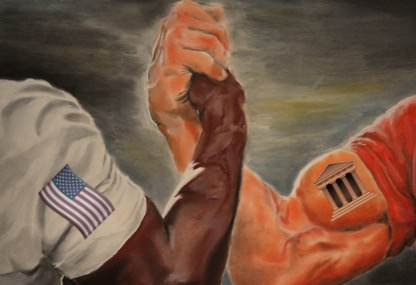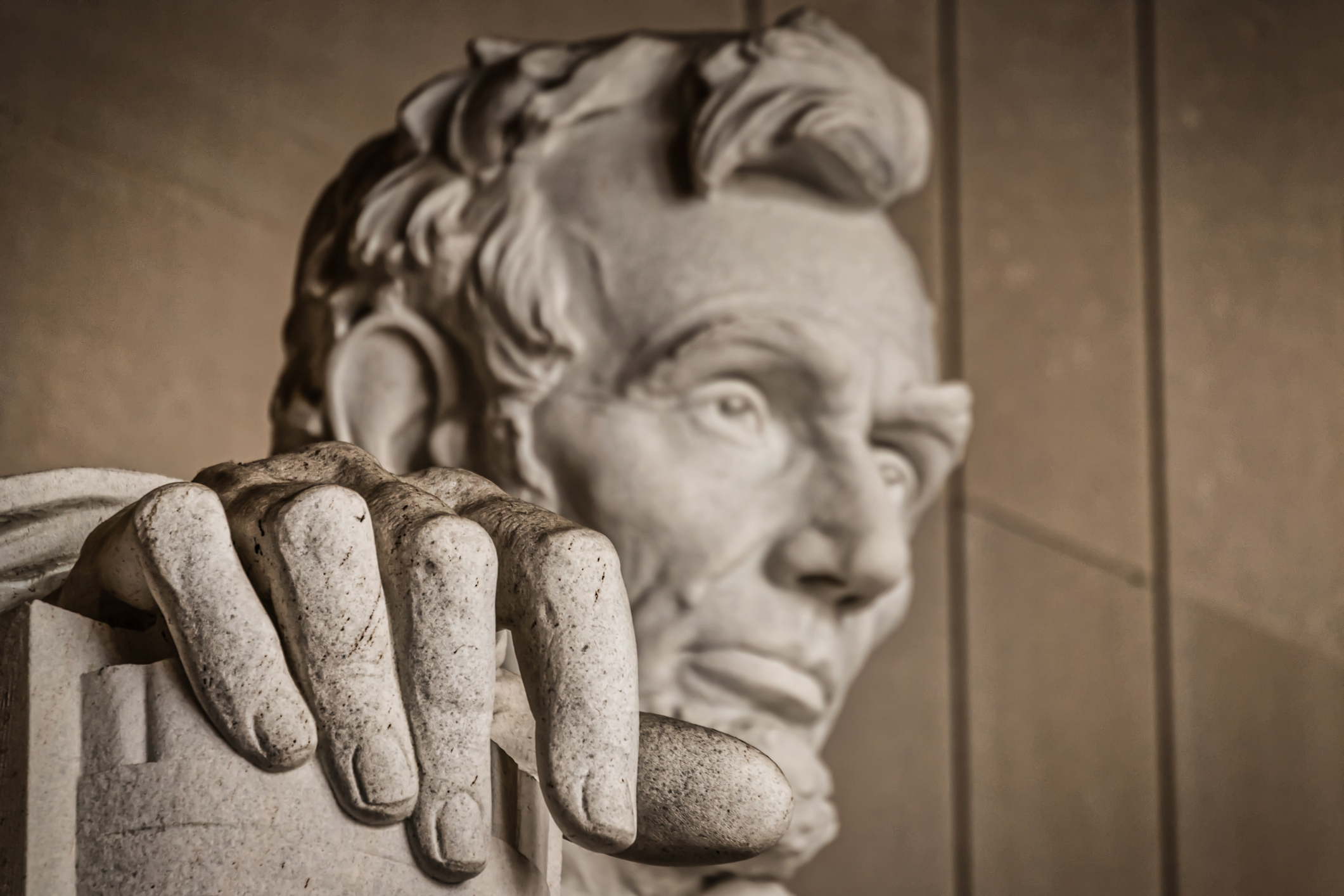Autonomously Chained

The will to mass perfection makes us perfectly unfree.
America is known as the “land of the free,” an increasingly debatable sobriquet. The nation lurches toward seemingly ubiquitous individual freedom—all while neglecting the moral foundation that spawned this republic. Both Democrats and Republicans, and libertarians cloaked as conservatives, bear fault. We need clarity about the concept of freedom and what yields a free people.
Being free implies residing in a functioning society not hindered by rampant immorality. In having the capacity to undermine human nature and the moral order in our staunchly individualist 21st century, Americans are fundamentally less free—beholden to a vicious cycle of hedonism and corruption; desperate, lonely, misguided, led by soulless sophisters. Mala vita.
The maintenance of certain political rights in a limited form does not mean we are free. Having the autonomy to participate in decadence—the popular conception of liberty— has little to do with freedom. It has more to do with being unconfined.
“Does blurting out whatever I wish to Internet strangers truly fulfill me, or am I taking a perverse pleasure in conflict?” Sohrab Ahmari wrote in his book Unbroken Thread, illustrating the freedom fallacy. “Is that sixteenth hour in the day spent toiling for a corporate boss an act of freedom and mastery, or is it merely depriving my spouse and children of my presence? Am I truly free to watch digital phantasms having sex, or am I perpetuating the exploitation of real people and digging myself into a degraded hole?”
In all Ahmari’s examples, man participates in the degradation of himself and those around him. There might very well be situations and laws that provide someone with more physical autonomy, but what good is such autonomy if it leads to moral decay and cultural disintegration?
Alexandr Solzhenitsyn warned of the consequences decades ago. In his 1978 Harvard University commencement address, Solzhenitsyn showed that making the individual “the center of everything” turned “the notion of freedom” toward “unbridled passion, in other words, in the direction of the forces of evil (so that nobody’s ‘freedom’ would be limited!).” Our “weakening of character in the West” is due to a perverse understanding of what being free genuinely connotes, which should correlate to the common good and not pave the way for our countrymen to be violated in the name of, say, market fundamentalism.
Herein lies the most significant divide between the so-called “new right,” or national conservative movement in the United States, and the fusionist old order. In order to “live not by lies,” as Solzhenitsyn described in his 1974 essay of the same name, the equation of more autonomy with being in possession of freedom—as properly understood—ought not to persist.
When conservatives in the state of Texas take action to ban abortion at six weeks, the unborn baby is extended more freedom, and the mother is protected from outside interests which seek to preserve the right to kill it. When conservatives call for social media companies not to ban a former president from communicating with his tens of millions of followers, it is a plea for a type of autonomy that relates to the highest good and what Americans know to be true about justice.
When lawmakers look to pass election security legislation that ensures free and fair elections, such as mandating voter identification, the rights of our fellow Americans are protected and our shared freedom strengthened. Peaceable citizens who expect that rioters will face prosecution for causing unrest are calling for the sort of freedom that recognizes human dignity and first principles. A society unbound by a moral compass when it comes to violence only infringes upon how much a citizen can be free in their own land.
Requiring private businesses to vaccinate workers against COVID-19 negatively constrains freedom. Not only is there a strong argument for people being able to choose what is injected in their bodies, but most people have a low chance of becoming sick and dying from the disease. The vaccine does not protect someone from infection so much as mitigate symptoms once you have it, which argues strongly against the idea that not being vaccinated is a danger to other people or limits their freedom.
While the differences between Communism and Western-style liberalism are certainly significant, both systems share an idealistic belief in the “basic goodness of the autonomous human being,” as Ahmari puts it. Such utopianism, which arose in Europe in the wake of the Enlightenment, has led people to see knowledge as the source of liberation, and to seek absolute knowledge so as to absolutely emancipate the world. Two ideologies are at play here—radical individualism and radical collectivism—but both are based on the dream of willed perfectibility.
But we are not perfect; we never will be. Our rights come from a higher good, and this good is the determinative factor in our level of freedom. Without purpose, without elites who care for the needs of our ailing people, without legislators willing to stand up for basic morality, Americans will grow ever less free.
The American Mind presents a range of perspectives. Views are writers’ own and do not necessarily represent those of The Claremont Institute.
The American Mind is a publication of the Claremont Institute, a non-profit 501(c)(3) organization, dedicated to restoring the principles of the American Founding to their rightful, preeminent authority in our national life. Interested in supporting our work? Gifts to the Claremont Institute are tax-deductible.
Free expression is so central to liberty that its restriction by private megapolies is intolerable.
The American Founding embodied whole truths based in natural rights.



